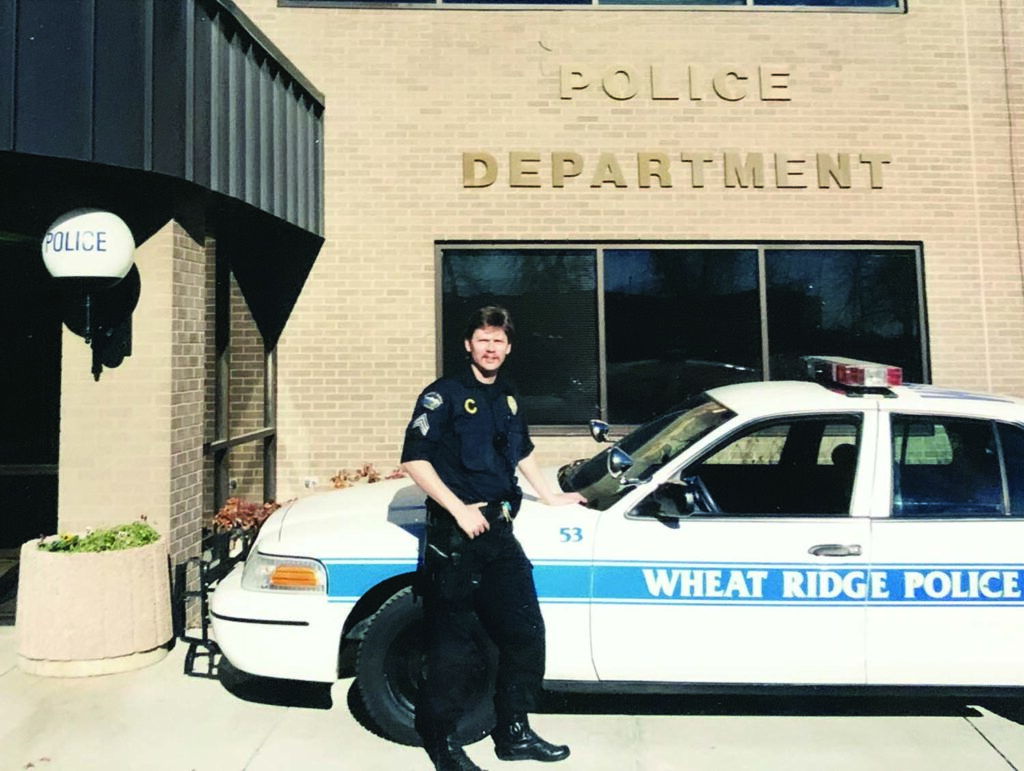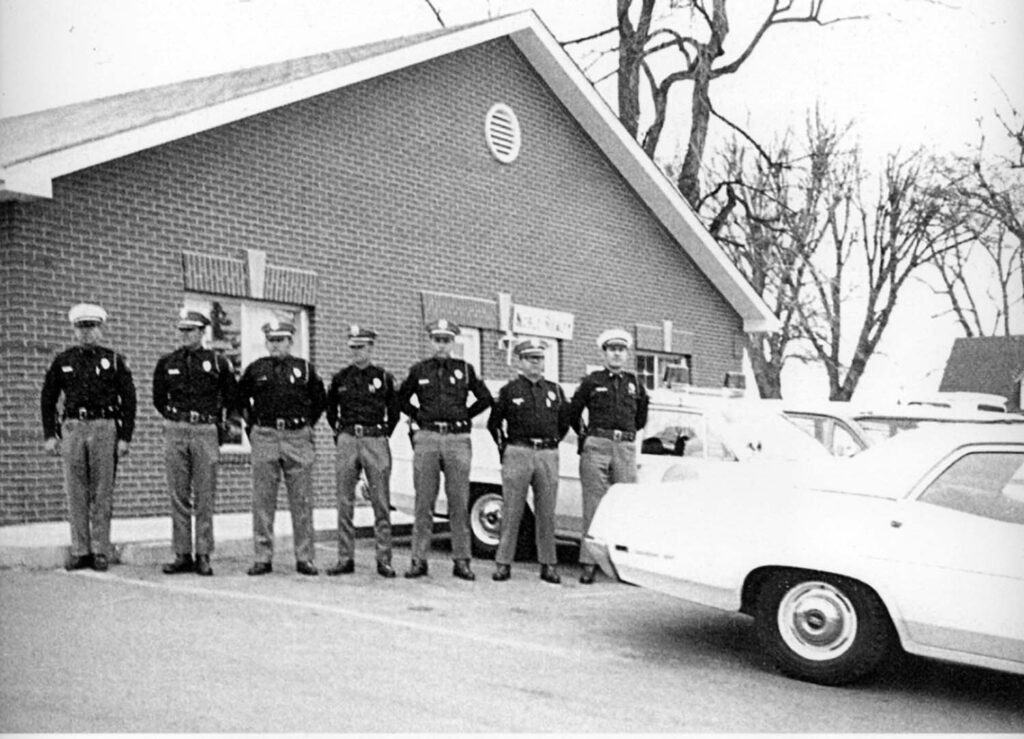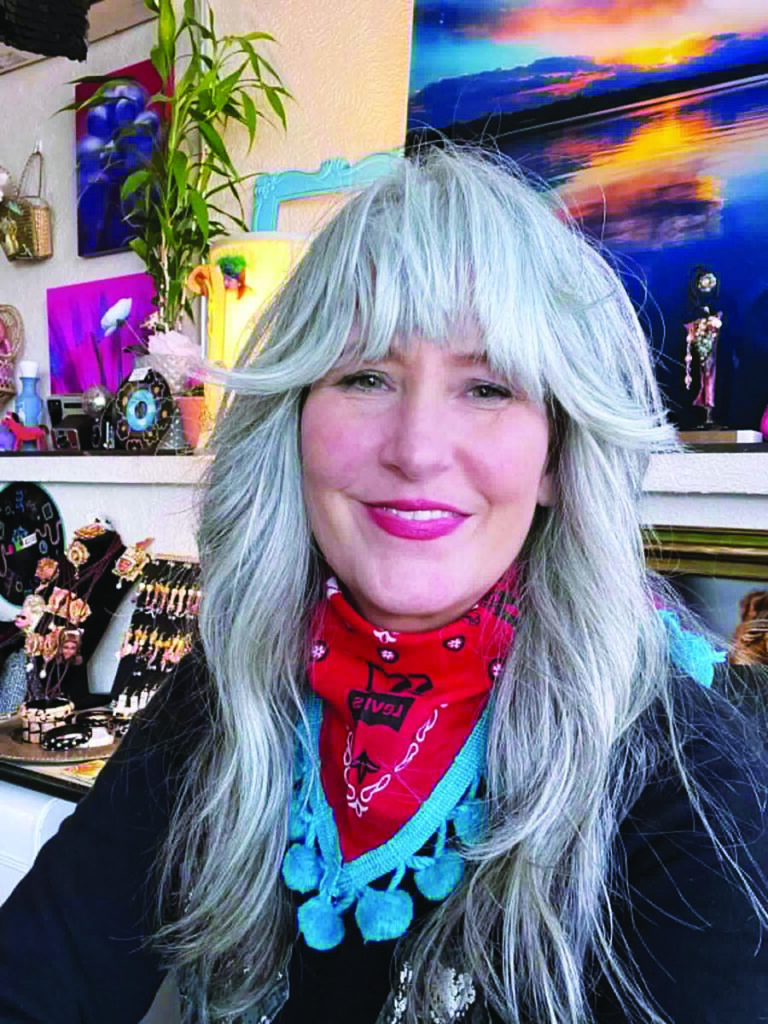Evidence of a community called Wheat Ridge dates back as far as 1859.
Before becoming an official city, the Wheat Ridge streets were patrolled by one Jefferson County Sheriff’s Department car, covering from Bellevue Avenue in Lakewood to 52nd Avenue in Arvada.
The lack of police involvement didn’t come from a lack of crime. Wheat Ridge residents were some of the hundreds of victims of garage burglaries occurring in the 1950s, among other routine crimes.
Narrowly escaping annexation from both Denver and Lakewood, Wheat Ridge incorporated in 1969.
Citizens of Wheat Ridge were more interested in being “left alone” from annexation into bigger cities than acquiring city services in the beginning, according to Jim Lorentz, longtime Wheat Ridge Police Officer.
The Wheat Ridge Police Department began with nine officers, who transferred from the Jefferson County Sheriff’s Department. Their first uniform even included Jefferson County shoulder patches with a little Wheat Ridge rocker attached.
The first acting police chief, Jack Bramble, was a member of the City Council and taught motorcycle riding in the Army during WWII. He also instructed police officers how to ride motorcycles. Although he had no police experience, the City Council urged him to take the unpaid position for a couple of months before Edward Pinson became the first official chief.
By the 1970s the Police Department separated from its association with the Jefferson County Sheriff’s Department, eventually operating out the current City Municipal Building by 1977.
A couple months into his retirement, Lorentz reflects on his 43 years of service and watching the Police Department grow and maintain its reputation over the years.
The Police Department grew to 45 sworn-in officers by Lorentz’s first year in 1981. Today there are 89 sworn-in officers.
“When I came here, it seemed like a well-run, normal police department,” Lorentz said. “It was great. It seemed older than 11 years old.”
Lorentz has worked for all of the five chiefs serving in the department.
“All of them cared about this place a lot,” Lorentz said. “Their whole heart and soul was the Police Department. They did great things.”
Lorentz still likes to catch up with the current chief Chris Murtha when he visits the Department.
Lorentz served in a variety of roles within the department, from training officers to investigating narcotics, working with a canine and in internal affairs.
“We’re a small department,” Lorentz said. “We can’t have people be in a position forever. We need to give other people a chance. We try to rotate people in and out. I never felt stuck in doing something that I didn’t like. I did things that I wasn’t as happy about, like working traffic, but I didn’t do it for very long.”
Lorentz remembers big cases from his first years serving in the department, from a beheading murder of a mother of two small children to handling three skydivers who fell to their deaths at the Carnation Festival in 1984.
Cheryl Jaster was another Wheat Ridge Police Officer at the scene of the murder. She still keeps in touch with the children of the victim.
As Wheat Ridge welcomed more residents moving to the City in the 90s, the demand for policing increased. Immigrant populations and even “yuppies,” as they were called back then, now called the City home. “Yuppies” expected police services and were willing to pay for it, Lorentz said.
Despite new populations with different demands from the long-time residents hoping to keep Wheat Ridge the same, the City has always been responsible for a conservative budget with scrutinized tax increases. The Police Department building, which now houses over double the officers from its original staff, has only seen one small expansion in 1995.
Wheat Ridge has never funded the fanciest equipment for the Police Department, but the Department values the trust between it and the community. That comes with taking accountability when the department makes mistakes, Lorentz said.
With other neighboring cities struggling to retain cops, Wheat Ridge receives an overabundance of applicants. Lorentz credits the Department’s willingness to move up officers as one of the reasons he stayed for his entire career. Lorentz moved up the ranks from sergeant, to lieutenant, to commander and eventually division chief.
Officer praise is not meant to placate officers but to give them opportunities to move up in the department, according to Alex Rose, the current Communications Officer for the Department.
“Jim’s a guy who started as a first job out of school,” Rose said. “I see that in a lot of our current recruits. I think a lot of the reasons why Jim decided to stay is the reason why we have a lot of people who will continue to stay and work at Wheat Ridge. I truly believe it’s a great place to start your career and it can be a great place to finish it. We try to back up our words with actions.”
Lorentz has seen changes to policing in general. He remembers when arresting multiple drunk drivers by himself in a night was a regular occurrence. Now standard practice requires multiple officers for an arrest and more resources.
Lorentz recognizes the fragile reputation that police have around the Nation. Over its history Wheat Ridge maintains practices to combat mistrust within their community, Lorentz said.
“We don’t keep bad officers around here,” Lorentz said. “[The Police Department] doesn’t make very many mistakes and [Wheat Ridge] trusts us to do good work,” Lorentz said. “We don’t have a group of people who hate the Wheat Ridge Police Department. Because of that, our reputation builds. It’s always important that we do things right. We investigate all complaints. We hold officers accountable.”
During his 17 years as division chief he’s been responsible for letting officers go from the Department, along with hiring long-time officers.
“It’s the greatest profession in the world,” Lorentz said. “You’ve got a front row seat to the big circus. For all of the horrible things that can happen, there’s also a lot of good things that happen. It really makes you feel like you’re making a difference in your community. You’re not selling widgets. You’re doing something for the community, which is really fulfilling. I loved it. I’d do it again in a minute.”







